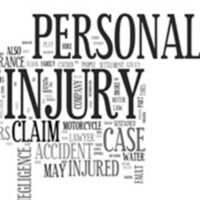Documenting Personal Injury Damages

As a plaintiff in a personal injury case, you will need to provide evidence of the expenses and damages that you incurred as a result of your accident. Whether you and your attorney are able to reach a pre-trial settlement with the other party’s insurer, or you resolve your case in court, an accurate accounting of your losses will be vital to making a full recovery. To learn more about how to document and prove these losses, please call our experienced Fort Lauderdale personal injury lawyers today.
Documenting Medical Attention
One of the most important things that an accident victim can do is to seek medical attention as soon as possible, even if he or she doesn’t seem to have sustained a serious injury. This initial trip to the hospital or doctor’s office is a critical form of documentation that can play a significant role in an eventual personal injury case. Delays in seeking medical care, for instance, can be viewed by a judge or jury as evidence that the injuries being claimed were either nonexistent or not very serious. These are not, however, the only types of medical records that accident victims should keep. Rather, plaintiffs should be sure to save all medical records and bills that relate to the diagnosis and treatment of an injury, including:
- A list of all any doctors or specialists who examined or treated them, such as primarily care doctors, emergency room physicians, physical therapists, and nurses;
- Bills related to lab and diagnostic tests, as well as treatment; and
- Receipts and invoices for travel expenses incurred while traveling to and from appointments.
For help organizing your own personal injury-related documentation, please reach out to our office today.
Documenting Lost Wages
Besides being able to recover compensation for medical bills, personal injury plaintiffs are also often entitled to compensation for lost income. These damages are, however, only recoverable if a plaintiff can actually provide proof of lost income through the submission of tax forms, pay stubs, letters from employers, bills, and invoices. This documentation must account for the time a person was away from work, as well as the income opportunities that he or she missed while recovering.
Accident Scene Evidence
When determining damages, insurers and courts also look to the degree of fault exhibited by both parties in an accident. This can, in turn, be proven through physical evidence from the scene of the accident, including police reports, which often contain witness testimony and other evidence that can help prove what happened on the day in question. Photographs are another form of evidence that can help demonstrate damages in an accident, as well as what happened, and who was responsible for a claimant’s injuries.
Set Up a Free Case Review Today
Your personal injury case is much more likely to be successful if you can provide a variety of sources that detail your injury-related expenses. Please call 954-566-9919 to speak with the dedicated Florida personal injury lawyers at Boone & Davis about compiling the documentation that can give you the best possible chance of recovery.
Resource:
scholarlycommons.law.northwestern.edu/cgi/viewcontent.cgi?article=4577&context=jclc
